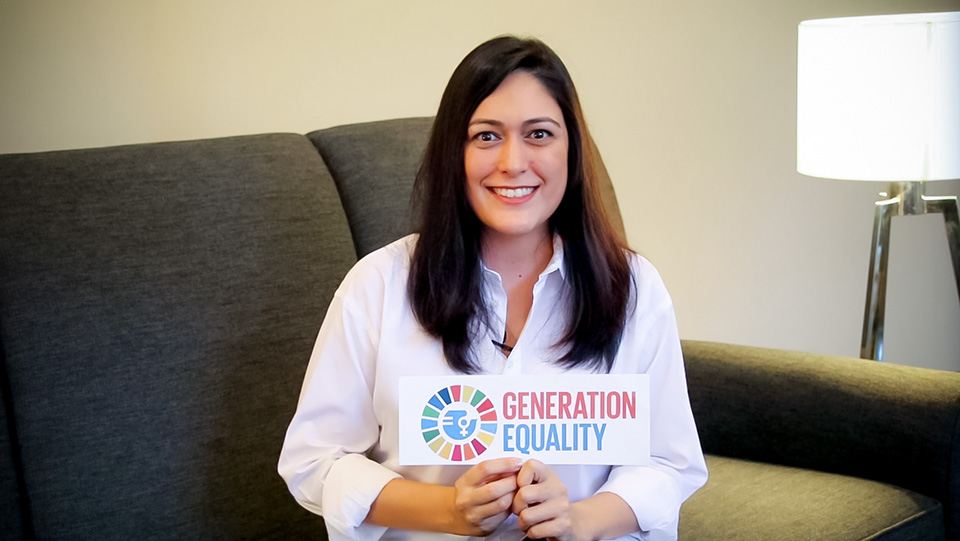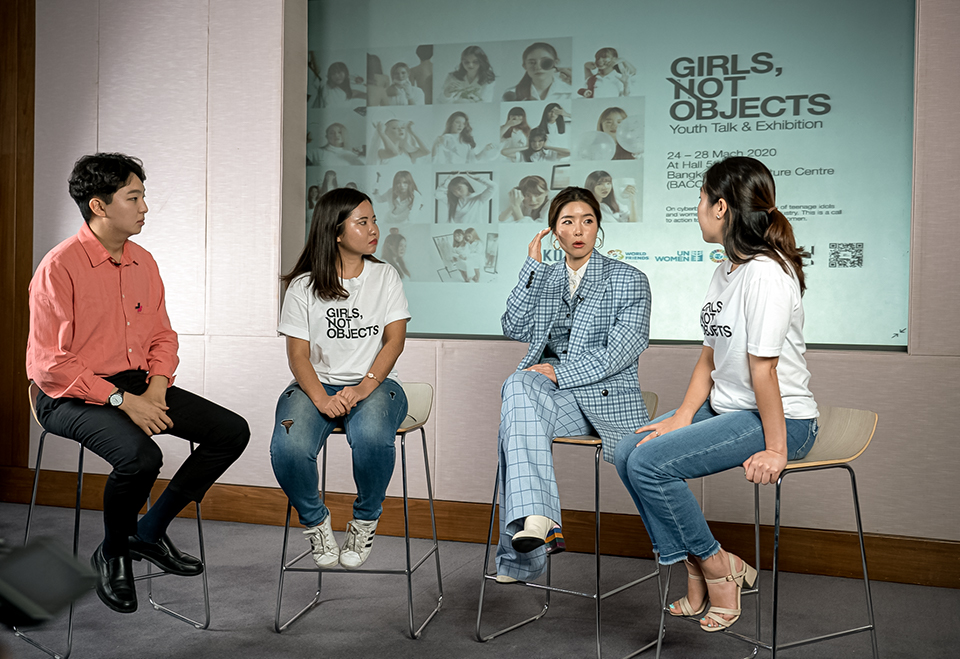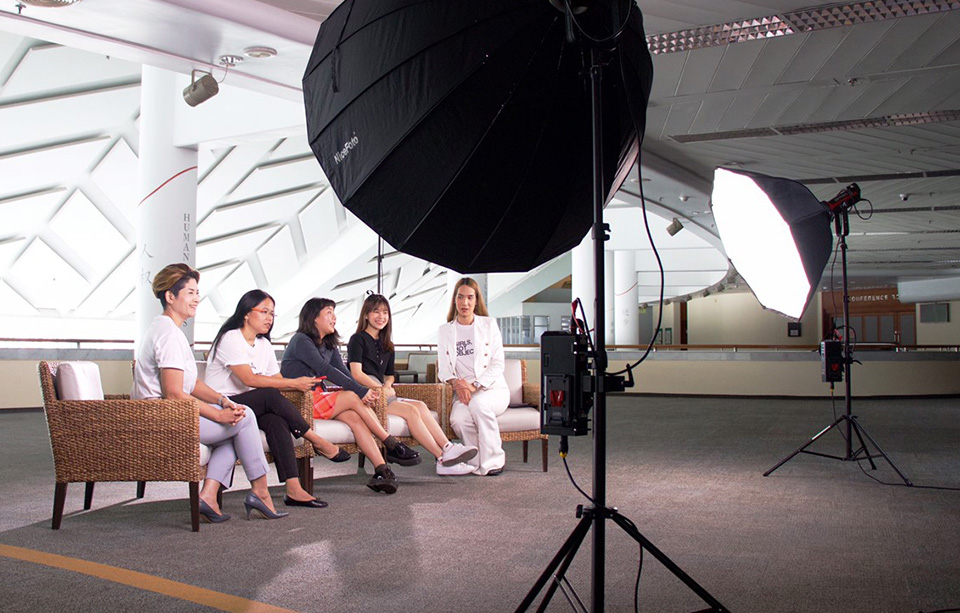Join us to fight another spreading virus: cyber violence
Date:
Authors: Hansol Park and Kanokchon Tantivechakul

With the coronavirus pandemic forcing us to stay home, we’re all spending much more time online now. Take advantage of that time and join an online youth-led campaign to make the online world safer for young women and girls.
From abuse and harassment to harmful stereotyping and images, women and girls face in the virtual world the same violence that they face in the physical world. In a global survey of 1 million young people, United Nations Children’s Fund (UNICEF) found that over 70 per cent are victims of online violence. From 5 to 21 per cent of children and adolescents are targeted by cyberbullying, with girls at higher risk than boys.
“Online violence has subverted the original positive promise of the Internet’s freedoms and in too many circumstances has made it a chilling space that permits anonymous cruelty and facilitates harmful acts towards women and girls.” —Phumzile Mlambo-Ngcuka, Executive Director of UN Women
We want you to join us.
With this campaign, we want to get people to become more aware of and think about a problem that many people either dismiss or don’t take seriously.
With lessons learned from an expert sharing by activist Jane Holloway on the importance of the younger generation taking action, youths can lead the way in finding solutions.

“Girls”, Not Objects features two Youth Talks. In one, Korean youths discuss the problem with a Korean actress who works in Thailand. In the other, Thai youths think through possible solutions with two media specialists.


Youth Art: Photo Exhibition was designed by the two Thai university student groups in collaboration with young female singers and entertainers – a favorite target of online abusers. After interviewing the entertainers, the students portrayed their experiences with objectification and cyberbullying in 18 photographic images. Some of those images are shown in this article.

“People really only think of the idol as an image, not as a human being with her own personality. That’s why people can write abusive comments without any sense of guilt, without thinking that it would hurt the person.” —Hyunjung Cha, Good Neighbors International
“So I tried to live up to people’s expectation, and in the meantime, I found myself fading away.” —Ji Yeon Seo, actress and MC in Thailand
“I encountered a problem that was usually left unspoken, which wascyberbullying. ... I decided to post online what cyberbullying is and what kind of effect it had on me. However, in response, people said that because I am an idol, I should be able to handle this.” —Naruthai Tansukasem, former leader of the idol group Siamese Kittenz
“I myself believe in the butterfly effect, where changes can start from one person who has a strong sense of what they believe in. People around this person will soon feel this one person’s impact, and from this impact, it will spread around and garner more people to help stop this problem and make a change.” —Panita Siriwongwan-ngam, Mu Studio team member
Of course online abusers target not only entertainers but also women and girls of every background, everywhere. During these quarantine times and in the future, let’s all be mindful that our words can hurt and let’s use the Internet and social media wisely.
How Can You Be Part of Our Campaign?
- Inform yourself! Visit “Girls”, Not Objects to learn about objectification and cyberbullying.
- Meet the experts! Check out the Experts Sharing with young people.
- Join the conversation! Watch the Youth Talks with Thai and Korean youths.
- Enjoy Youth Art! As you look at the exhibition, think about the messages the student artists incorporated into each photo.
- Download the Social Media Action Package! Get the templates from the Girls Not Objects page and post them. Join the campaign and spread the word. Don’t forget to tag three of your friends to pass on the word.
What can we do in or daily lives to avoid treating people as if they were objects?
- Create safe digital spaces by treating everyone with dignity and respect – the same way that you would want them to treat you.
- Use gender-inclusive language when you comment on or share something online, treating women and men equally and avoiding gender stereotypes.
- Avoid judging people simply by their outer appearance. Whatever they want to wear, however they want to present themselves, respect those choices. Let’s just accept that everyone has a different style.
- Avoid crossing each other’s personal boundaries and private space.
* ”Girls” here is a reference to female idols. The term is used by people in the entertainment business and by fans.

